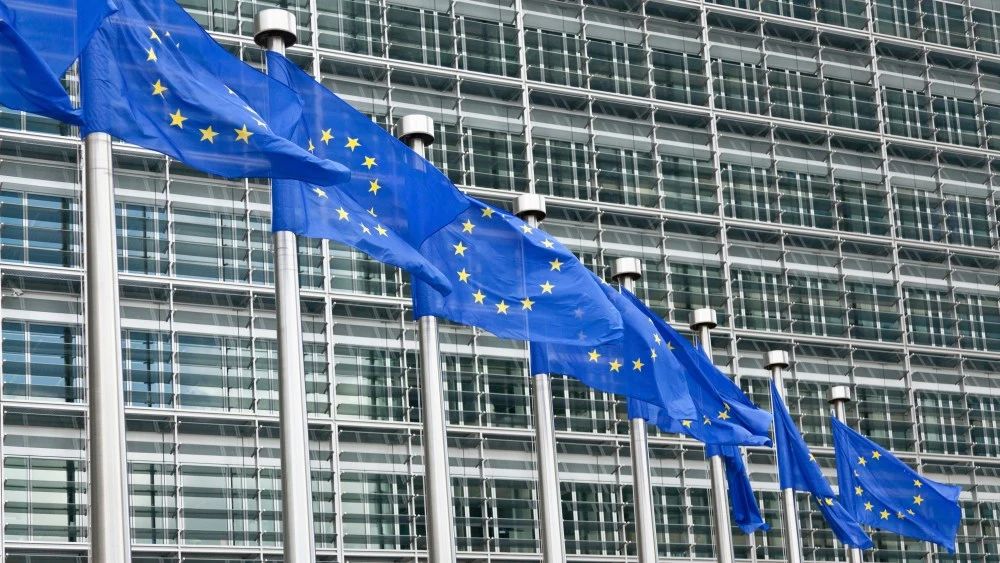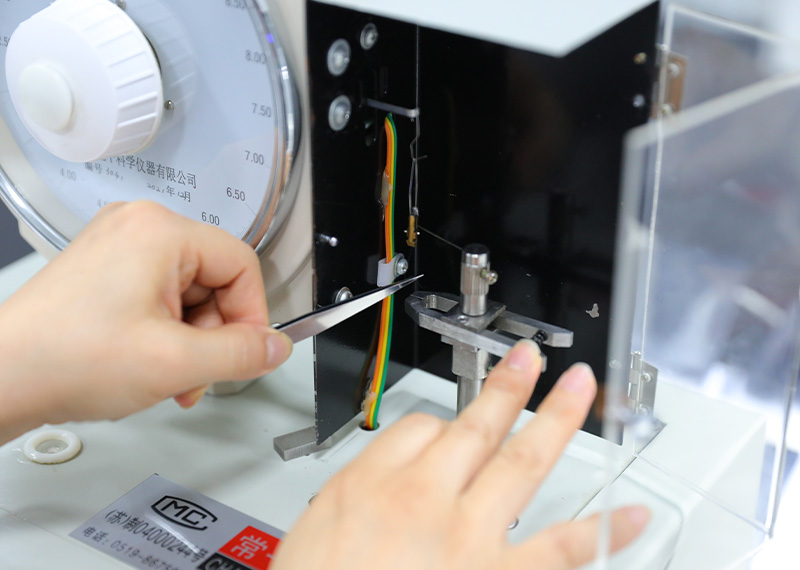Product Consultation
Your email address will not be published. Required fields are marked *
The EU will regulate the entire lifecycle of textiles from production to waste. The new regulatory regulations apply to any brand sold in the EU, and as long as it is sold in the EU region, regardless of its origin, it must comply with this law. At the same time, new laws formulated by France, Germany, and the Netherlands are about to take effect.

European Parliament Building, Brussels, Belgium / Source: Getty Images
01
Establish sustainable regulation of the textile industry at the legislative level
EU regulations and new laws coming into force in various countries in 2023 will bring significant changes to the apparel and footwear industries in Europe.
The EU has long been a leader in sustainability policy, and it has stricter requirements for fashion and textiles. With several pieces of legislation underway and new rules and guidelines expected to begin rolling out this year, countries aim to overhaul the industry by 2030 in line with the overall strategy for sustainable textiles.
"In Europe, at least, the textile industry is moving from a fairly unregulated or self-regulated industry to a very regulated one. This is indeed a huge change that our company may not yet understand or understand, but this change is happening," said Dirk Vantyghem, Director General of the European Apparel and Textile Association.
Launched in March last year, the strategy aims to address the destruction of fast fashion, textile waste and unsold textiles to drive the industry towards a more sustainable and transparent direction.
"From an EU perspective, the fashion industry will be regulated from start to finish in a few years. It will go from zero with little sustainability legislation to cover everything from production to design to waste management. So over the next two years, how to try to manage all of this in an efficient way is going to be an industry whirlwind," said Rannveig van Iterson, senior sustainability consultant at Ohana Public Affairs.
"By 2030, we're going to have a very, very different framework that our companies will need to operate in. Of course, this will require a lot of changes in how they communicate throughout the supply chain, how they label products, and more fundamentally how they produce," Vantyghem added.
Under the textile strategy, various interrelated legislation will come into force on different timelines and legally binding requirements will be introduced over the next two to three years. The EU is working on the details of specific sustainability, circularity and ecodesign regulations, with some important milestones expected in 2023.
02
Stricter definitions of sustainability and new guidance
Earlier this year, with the Substantiating Green Claims initiative, stricter definitions of sustainability and new guidelines are expected to be released. These are all to clarify the more than 200 certifications and labels used in the EU and require companies to use an environmental footprint approach to support their marketing.
In the second quarter, a proposed waste framework directive is expected on "extended producer responsibility (EPR)", recycling and waste prevention. Under EPR, companies pay for recycling and disposal for each garment they sell. By 2025, Member States must establish separate textile waste collection systems.
It is expected that in the fourth quarter of this year, a proposal on the treatment of microplastics will also be presented, and a new waste transport regulation aimed at stopping the dumping of old clothing in the Global South is being passed by parliament and member states.
This is just the tip of the iceberg of the industry aiming to overhaul clothing and textiles. The Eco-design for Sustainable Products Regulation (ESPR) was published in March 2022 and is currently undergoing legislative debate. With an eye on durability, energy use, recycling, carbon and environmental footprint, and digital product passports, it will provide insight into the sourcing and manufacturing of garments in line with strict reporting requirements.
Valerie Boiten, senior policy manager at the Ellen MacArthur Foundation, said: "ESPR is probably the most impactful legislation in terms of regulatory implications at the product level, as it will set the standards that some products need to meet or they cannot be sold in the EU single market.
03
Regardless of origin, it is subject to EU regulations
The EU's new regulations will apply to any brand sold in the EU, regardless of its origin, as long as it is sold anywhere in the EU, companies must comply with the law. Around 250 billion garments are imported into the EU each year, from socks to dresses and more, and it is hoped that applying these standards at the origin of products will help manufacturers and suppliers worldwide accept and enforce stricter environmental standards. But how to enforce it, especially for mail-order clothing from popular fast-fashion websites and apps, remains to be explored.
"Big change is coming, and it's making our company anxious. But we've been saying that if this new regulatory framework is a good one, then it might actually help our industry be more sustainable and remain competitive," Vantyghem said, noting that "if these regulations only apply to Europe and other countries don't, it could put European companies at a disadvantage." We need to be very, very careful not to obliterate European industry by completely disappearing the level playing field. ”
However, with the legislation underway, the EU's desire to disrupt the textile industry is evident, and many brands are already making changes, Boiten said, "We don't have to wait until 2030 to see the industry change, companies are implementing solutions... It's better to be prepared than to sit still. ”
04
EU countries such as Germany, France, and the Netherlands are already taking action
In the Netherlands, a new EPR law is expected to come into force for clothing and home textiles on July 7. The new law stipulates a "polluter pays" approach, requiring producers and importers of products in the Dutch market to be responsible for the entire life cycle of the products they sell in the country, specifically to make large fashion chains bear the cost of collecting and disposing of their garments, rather than adding burdens to the city. Companies will pay for each piece of product that goes into a separate collection system and must meet the goals of reuse, reprocessing and recycling of garments. The goal is to halve the use of primary raw materials by 1 and transition to a circular economy by 2030. By then, half of the garments on the market will have to be made up of recycled materials, and the government aims to achieve zero textile waste. Details have not been finalized, but early discussions put it at between 2050.0 and 10.0 cents per garment.
Back in 2007, France introduced the concept of extended producer responsibility for textile products, household linens and footwear, but the country is now becoming more stringent. On January 1, a series of new regulations on environmental standards for clothing and footwear came into force under the country's Anti-Waste and Circular Economy Law. Part of this is the new "digital passport", which provides specific information on manufacturing and materials at every step of the supply chain, as well as the true recyclability of clothing and shoes. In 1, it will affect large brands with a turnover of more than 2023 million euros and 5000,25000 products sold in France, with a phased expansion to smaller companies.
The law also clearly defines the term "recyclable," removing any ambiguity that can actually be done at current collection, sorting, technology and scale, and trying to bust the myth that what consumers put in store bins can actually be turned into new clothes or T-shirts. As a result, the word will be scarce because, under the new definition, most clothes cannot be recycled.
Parts of the law also address green washing and apply to all brands, regardless of size. Any claims that the product is "eco-friendly," "biodegradable," or any other similar environmental claim will cease to exist. All such packaging must be removed from shelves, websites and product brochures by January 1. Fines range from €1,15 to 000% of annual turnover and can be increased to 10% of advertising costs for misleading claims, depending on the violation.
"Carbon neutral", "zero carbon" and other similar terms have also come under new regulation, with fines of up to €10,<>.
In Germany, the Supply Chain Due Diligence Act came into effect on January 1, and companies are now responsible for their entire supply chain, from sourcing components to how and where products are produced. This is a big issue, and the new law applies to human rights and environmental impacts, aiming to target child and slave labor, as well as soil destruction, water waste and pollution in manufacturing countries. From January 1, any company operating in Germany with more than 1,1 employees will be obliged to report, and by 3000 this threshold will be lowered to 2024,1000 employees. For big brands, the penalties here are severe, with fines of up to 2% of their annual income.

What do we need to know about EU carbon tariffs?
2023-02-25
Nylon 66, constantly emerging
2023-03-22Your email address will not be published. Required fields are marked *
Focusing to the research and production of differentiated fiber. Applying recycle-material processing scientifically.
Zhulinjizhen, Xinfeng Town, Jiaxing City, Zhejiang Province
Copyright @ 2023 Jiaxing Fuda Chemical Fiber Factory All rights reserved
Polyester Staple Fiber Manufacturers
Friendship link - Anhui Fulin Environmental Protection Technology Co., Ltd.:https://www.ahflhb.com
